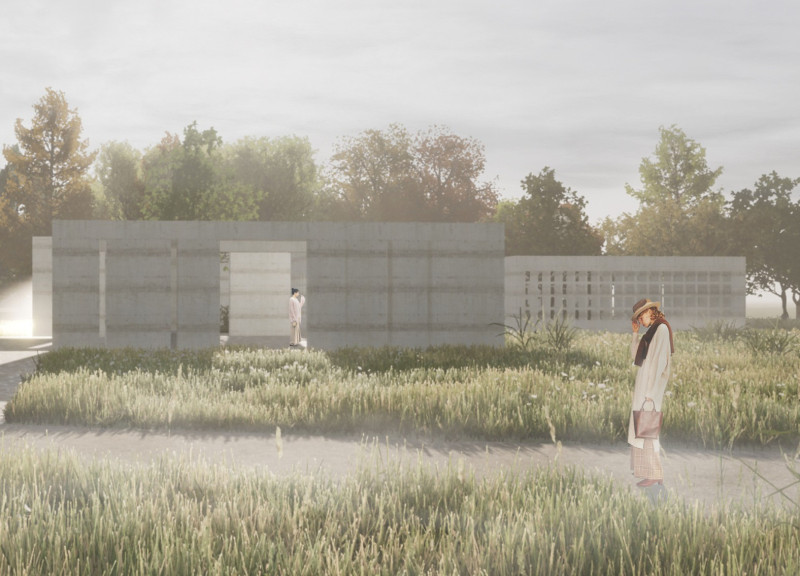5 key facts about this project
The Columbarium - The Chamber of Memories is an architectural project located within the Riga Forest Cemetery, Latvia. This facility is designed to serve as a contemplative space for commemoration, merging architecture with natural landscapes to enhance the user experience. Its function is to provide a respectful environment for the remembering of loved ones while facilitating personal and communal reflection.
The design incorporates four primary components: a ceremonial space, three columbarium zones, and movable walls, each serving distinct roles within the overall structure. The ceremonial space functions as the main gathering area, allowing for rituals and communal remembrance. The columbarium zones house niches for urn placements, ensuring that personal memorial practices can be observed. Movable walls provide flexibility in spatial arrangement, accommodating varied user interactions and preferences.
Unique Design Approaches and Materiality
This project differentiates itself from traditional memorial architectures through its integration of movable walls, which permit users to tailor spaces to their needs. This dynamic aspect of the design encourages personal involvement and enhances the memorial experience. The incorporation of local materials, such as polished concrete and local aggregates, not only reduces the environmental impact but also infuses the project with cultural significance, reflecting the architectural character of the surrounding region.
The careful arrangement of spaces directs visitor flow, leading individuals from arrival through a series of experiences culminating in a thoughtful reflection within the ceremonial space. The use of candles strategically placed within the columbarium niches emphasizes both personal remembrance and collective ceremonies, creating an atmosphere conducive to contemplation.
Spatial Organization and User Interaction
The design effectively separates sacred areas from more communal spaces, creating a clear hierarchy of experience. The axial layout guides visitors towards the ceremonial space while maintaining connections between various zones. This organization fosters an environment not only for grief but also for the celebration of life, as visitors can navigate through the space in a manner that suits their personal needs and practices.
The project embodies a harmonious relationship between architecture and nature, making use of the forest's existing elements. Pedestals crafted from cement with natural motifs enhance the connection to the surroundings, emphasizing a continual bond with the natural world.
For those interested in exploring the Columbarium - The Chamber of Memories in greater detail, the architectural plans, sections, and design concepts provide a comprehensive overview of the project's intent and execution. Engaging with these elements reveals the thought processes behind the architectural ideas and illustrates how this project serves a vital role in the context of memorial architecture.





















































